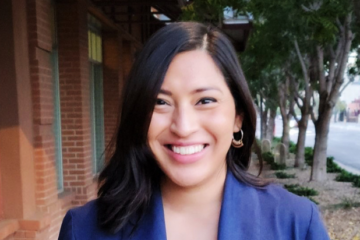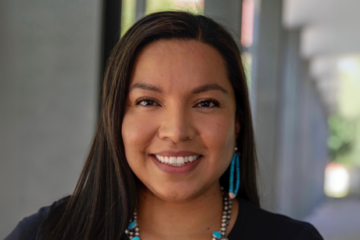Angie Bautista-Chavez, PhD
Angie M. Bautista-Chavez (Ph.D., Harvard, Government) is an Assistant Professor of Political Science at Johns Hopkins University. As a scholar of American politics, she examines the politics of migration, borders, bureaucracy, race, and citizenship. She is interested in the dynamic interplay between states and racialized migrants – at one level, how Latinx immigrants are regulated by and contend with the American state, and at another level, how the United States has expanded its regulatory reach beyond its borders. In her book project, Exporting Borders, she traces the policy choices and bargains between the United States and Mexico, two asymmetrically positioned states, to explain the making of current and still unfolding externalization and containment regimes. Her collaborative research about the Latino organizational terrain provides new entry points into the study of American politics and collective action by centering the civic lives of Latinos and Latino immigrants across U.S. political environments. Dr. Bautista-Chavez’s research has been supported by fellowships and grants from the Russell Sage Foundation, J.P. Morgan Chase Foundation, Center for Advanced Study in the Behavioral Sciences, Radcliffe Institute for Advanced Study, Weatherhead Center for International Affairs, Multidisciplinary Program in Inequality and Social Policy, Immigration Initiative at Harvard, Center for U.S.-Mexican Studies, Ford Foundation Fellowship, and the APSA Minority Fellows Program. Following in the tradition of programs like the Ralph Bunche Summer Institute, Mellon Mays Undergraduate Fellowship, and the Hispanic Scholarship Consortium, Dr. Bautista-Chavez is committed to creating more inclusive systems of knowledge production via her research, teaching, and mentorship









